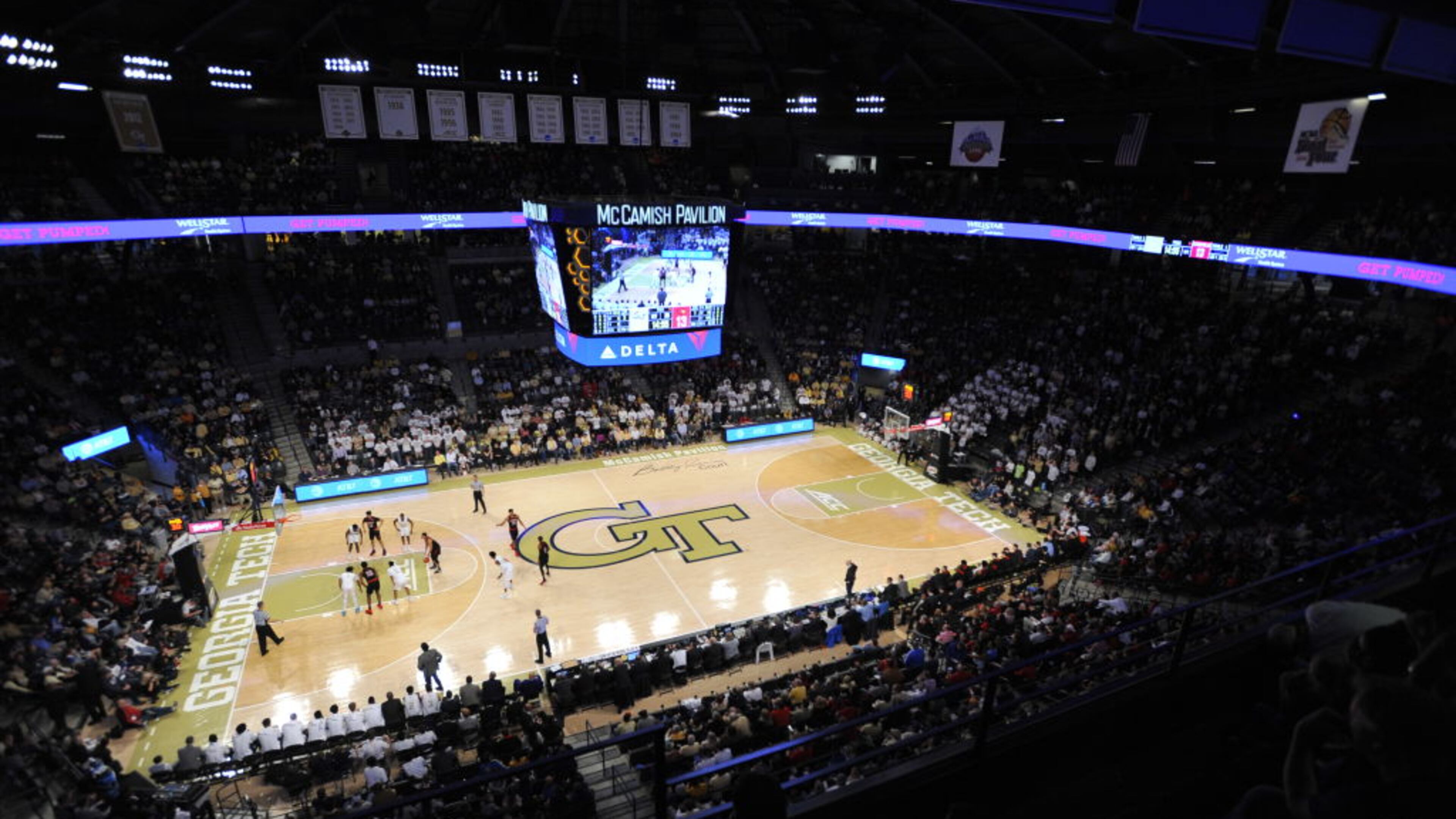Examining the types of sanctions Georgia Tech could be facing

The NCAA has alleged that Georgia Tech has committed recruiting violations that rise to the level of severe breach of conduct.
What sort of penalties that means for the institute and specifically for the Yellow Jackets basketball team and coach Josh Pastner is not clear. But if Tech is indeed deemed to have committed Level-I violations (the highest level of the NCAA’s violation structure), as NCAA investigators believe, there are some guidelines about what the penalties might be.
The NCAA’s database on major infractions lists 17 Level-I cases in the past five years, a time period in which the NCAA has used standardized penalties. Of the 17, 16 were penalized with probation. Of the outcomes perhaps of greatest concern to Tech fans, 14 had scholarships reduced, 13 faced recruiting restrictions and 11 sat out at least one postseason. Many of the penalties were self-imposed.
There is reason to hope that Tech could get off on the lighter side for the violations alleged – first, former Tech assistant coach Darryl LaBarrie arranging for a prospect (reported to be former Duke star Wendell Carter) to have an impermissible recruiting contact in November 2016 with a representative of Tech’s athletics interest (reported to be former Tech star Jarrett Jack), a contact that enabled Jack to provide Carter and a team member (details in the notice of allegations leave little doubt that it is former team member Justin Moore) with $300 each and then taking them to a strip club.
A year later, when confronted with the allegation, LaBarrie was found to have provided false or misleading information when confronted with the allegation and also to have asked Moore to recant the information he provided to NCAA investigators and Tech staff. Second, former Pastner friend Ron Bell was alleged to have provided travel, lodging, meals and clothing to former team members Tadric Jackson and Josh Okogie and also attempted to influence former Memphis player Markel Crawford to transfer to Tech while Crawford was still playing through hundreds of text messages, and also provided Crawford and his brother with airfare to visit him in Arizona (before Crawford chose to transfer elsewhere).
The scope of the 17 Level-I violations in the past five years is considerable, and most others seem to be far more deliberate and broad. Tech could argue that the alleged violations, while severe and clearly seeking to gain a recruiting advantage, were isolated and not on the scale of other Level-1 violations.
Further, neither Pastner nor the school were hit with charges such as failure to monitor or lack of institutional control. In Pastner’s case, that may be particularly noteworthy because of an NCAA concept known as “head-coach responsibility,” which means that a head coach is presumed to be responsible for any violation that occurs within a program unless the coach can show that he or she promoted an atmosphere of compliance and monitored his or her staff.
“If it ends up being a Level I, then what I look at is the Level-I standard penalties,” said Christian Dennie, an attorney in Fort Worth, Texas, who has represented schools in a variety of NCAA investigations.
In addition to trying to distance itself from Bell, and possibly LaBarrie, Tech could self-impose probation, a fine and recruiting limitations and hope that would appease the infractions committee without having a postseason ban or scholarship restrictions tacked on. Tech could posit that a penalty directed at recruiting would be apt for recruiting violations and that a postseason ban would not “fit the crime.”
LaBarrie, particularly for his attempts to mislead NCAA investigators, could be facing a show-cause order, which has effectively come to be a suspension from coaching at the college level for the duration of the order.
“He’s going to get hit for that,” Dennie said.
LaBarrie, for his part, told the AJC in a text message that not all of the allegations against him are true and that “the truth will come to light when I meet with the committee.” (He also wanted to make clear that he had met Bell but did not associate with him.)
There is a long way to go, however. Tech has until May 16 to respond to the allegations, and then will proceed to a hearing. It could easily be another year before the committee on infractions hands its decision down.



